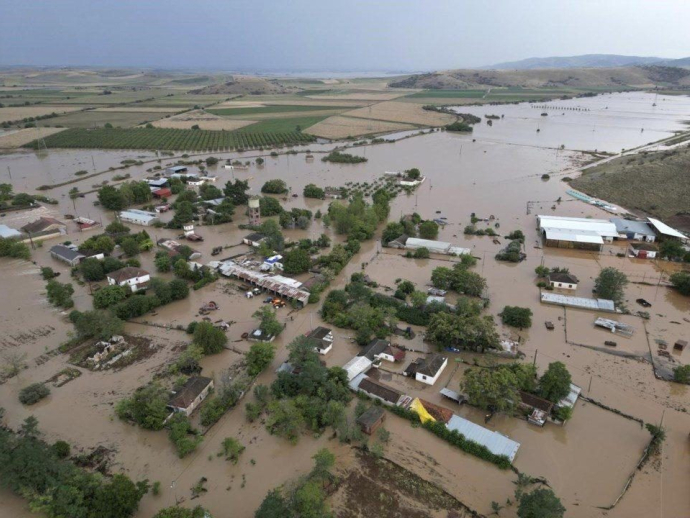Island is without drinking water after pipeline damage - authorities say sabotage
Officials said an explosive charge likely cut off the supply of fresh water carried along the 12-kilometer-long (7.5-mile-long) pipeline and that repairs were likely to take several weeks. Greater Athens regional governor Nikos Hardalias said Tuesday that coast guard divers had located the damaged section.
Some officials have suggested that the alleged sabotage might be connected to competition among private interests to supply Athens’ nearby islands with water. Hardalias, who traveled by boat Monday to an area above the damage site, said he had requested a judicial investigation into the alleged attack.
“Our priority is to upgrade and update our security measures so that this critical infrastructure is not subject to another act of sabotage,” he said.
Aegina is a popular weekend destination for people who live in Athens. The island lies 25 kilometers (15.5 miles) southwest of Piraeus, home to the Greek capital’s main port, and has a year-round population of about 13,000 residents. [AP]
Moreover, a fresh inspection of the underwater water supply pipeline connecting the island of Aegina, near Athens, to the mainland is scheduled to be conducted in the coming days by the Underwater Missions Unit (MYA) of the Hellenic Coast Guard.
The objective will be to ascertain the precise cause of the damage to the pipeline that occurred in the early morning of January 24th, 2024, resulting in the interruption of drinking water supply to the island which has a population of around 13,000.
Initial reports suggested that the damage to the 12-kilometer (7.5-mile) pipeline may have been caused by an explosive device.
However, sources informed the media that the inspection conducted on Saturday at a depth of 50 meters did not reveal clear signs of a blast that would directly indicate sabotage.
These sources further indicate that definitive conclusions can only be reached once the concrete protective coating is removed, revealing the body of the pipeline.
The second on-site inspection is expected to take place this Friday or Saturday.
In earlier news, the Attica Regional Authority has attributed the latest damage to the underwater pipeline for Aegina island in the Saronic Gulf to sabotage.
It was the fourth time that the pipeline has suffered damage and there were indications that an explosive device was used.
The new regional governor of Attica, Nikos Hardalias, announced that he was to file a complaint with the prosecutor last Friday over the incident.
“This is not a coincidence. This is the fourth time that Aegina’s underwater water supply pipeline has been damaged – the previous ones were in January 2020, and May and July 2022,” he said in comments to the media.
“This time there are clear indications that an explosive device was used, 800 meters from the shore and at a depth of 48 meters. So this is not a simple case,” he added, suggesting that there may be interests behind these incidents.



























































































































































































































































































































































































































































































































































































































































































































































































































































































































































































































































































































































































































































































